Tinnitus Awareness Week: Understanding and Managing Tinnitus
 Tinnitus Awareness Week is an important time to shed light on a condition that affects millions of people worldwide. If you or someone you love experiences a persistent ringing, buzzing, or hissing sound in their ears, you are not alone. Tinnitus can be frustrating, overwhelming, and, at times, life-altering. However, while there is no single cure for tinnitus, there are effective ways to manage it and significantly reduce its impact on daily life.
Tinnitus Awareness Week is an important time to shed light on a condition that affects millions of people worldwide. If you or someone you love experiences a persistent ringing, buzzing, or hissing sound in their ears, you are not alone. Tinnitus can be frustrating, overwhelming, and, at times, life-altering. However, while there is no single cure for tinnitus, there are effective ways to manage it and significantly reduce its impact on daily life.
What Is Tinnitus?
Tinnitus is neurological disorder. It is the perception of sound in the ears or head when no external source is present. It can vary from mild to severe and may be temporary or chronic. While tinnitus is often associated with damage to the auditory system.
Managing Tinnitus: Finding Relief
Tinnitus can be managed. Here are some effective strategies to help make tinnitus less noticeable:
– Hearing Aids & Sound Therapy – Many individuals with tinnitus also have hearing loss. Properly fitted hearing aids provide auditory stimulation to the brain, helping to mask tinnitus and improve overall hearing. Specialized tinnitus maskers and sound therapy can also provide relief.
– Cognitive Behavioral Therapy (CBT) – Stress and anxiety can make tinnitus worse. CBT helps individuals change their response to tinnitus, reducing distress and improving quality of life.
– Lifestyle Adjustments – Reducing caffeine and alcohol intake, avoiding loud noise exposure, and practicing relaxation techniques such as meditation and deep breathing can all help alleviate symptoms.
– Professional Guidance – An audiologist trained in tinnitus management can create a personalized treatment plan to help you regain control over your symptoms.
You Are Not Alone
One of the biggest challenges for tinnitus sufferers is the feeling of helplessness when told that “nothing can be done.” At The Hearing & Dizziness Clinic, we have been successfully managing tinnitus for years. Our team of audiologists is here to provide support, education, and effective treatment options tailored to your needs.
If you or someone you know is struggling with tinnitus, we encourage you to seek professional help. Contact us today to learn more about how we can help you manage your symptoms and improve your quality of life.
Let’s use Tinnitus Awareness Week as a reminder that while tinnitus may not have a cure, there is always hope for relief and better days ahead.

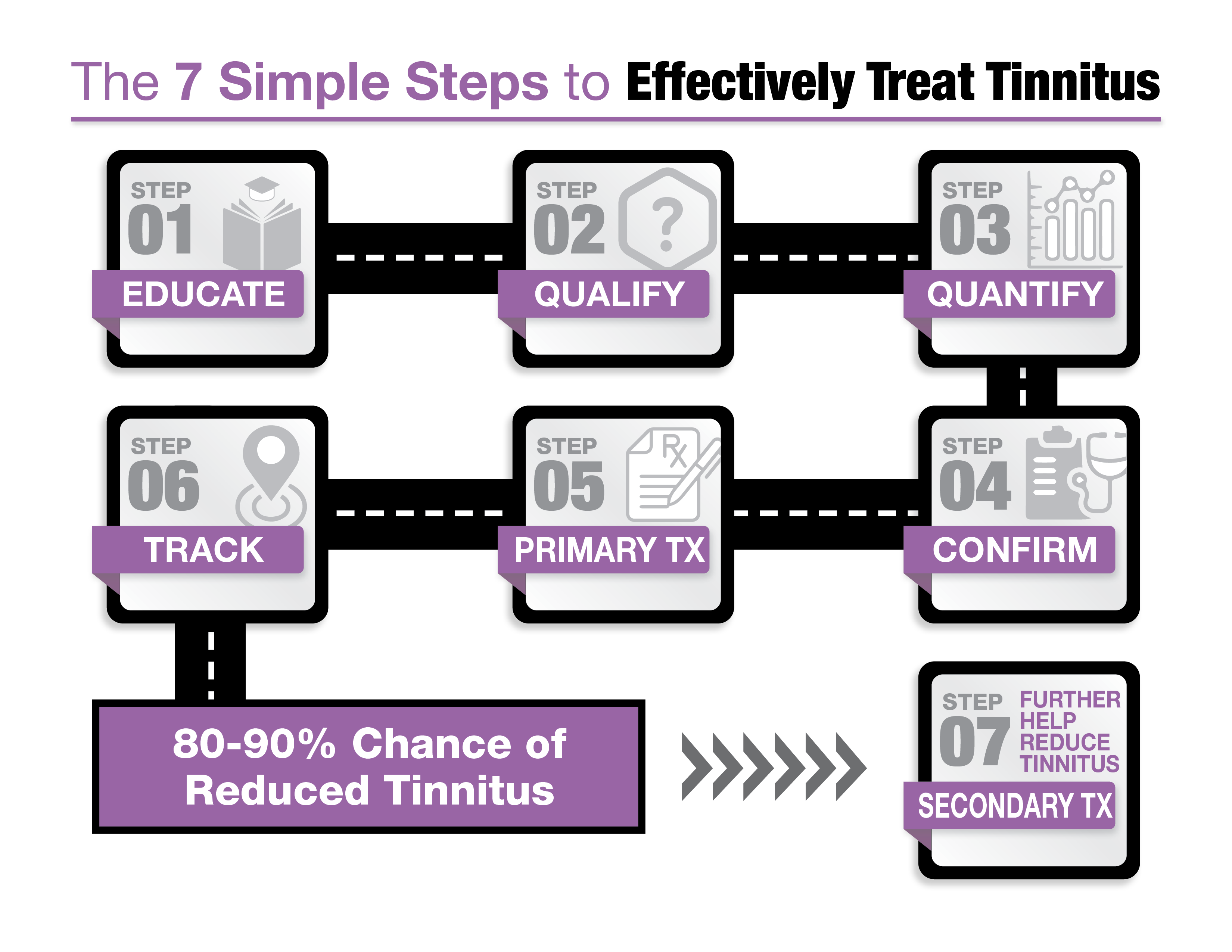 1. Education through Expert Resources
1. Education through Expert Resources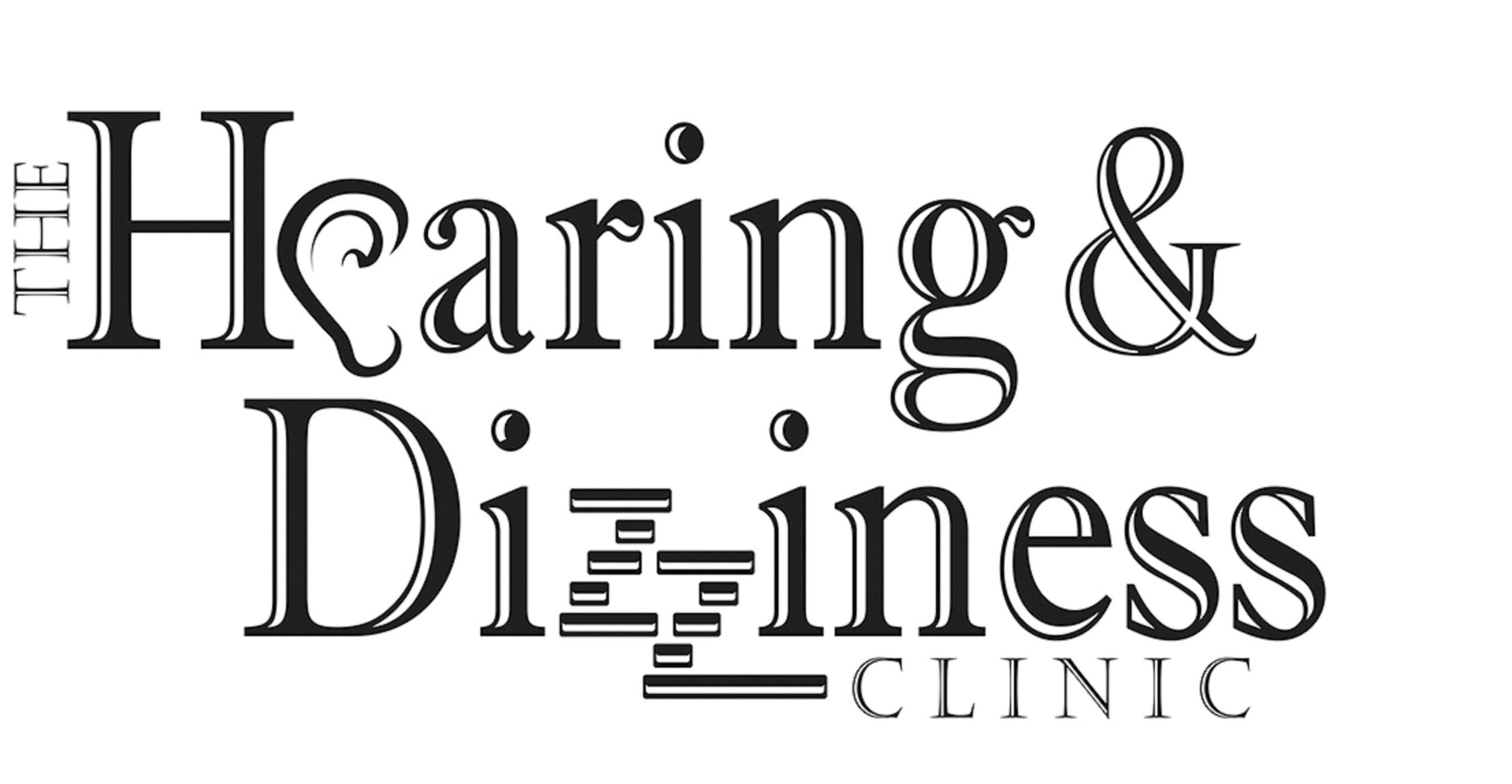 I am Bernice McKenzie, an audiologist and the owner of The Hearing & Dizziness Clinic. Originally from Brantford, Ontario, I moved to Windsor to attend Wayne State University, where I was part of the first graduating class of Doctors of Audiology. Audiology, the study of hearing and balance disorders, provided me the opportunity to help people—a core value in my family of nurses and social workers. However, I soon realized that the profession was shifting towards hearing aid sales rather than patient care.
I am Bernice McKenzie, an audiologist and the owner of The Hearing & Dizziness Clinic. Originally from Brantford, Ontario, I moved to Windsor to attend Wayne State University, where I was part of the first graduating class of Doctors of Audiology. Audiology, the study of hearing and balance disorders, provided me the opportunity to help people—a core value in my family of nurses and social workers. However, I soon realized that the profession was shifting towards hearing aid sales rather than patient care.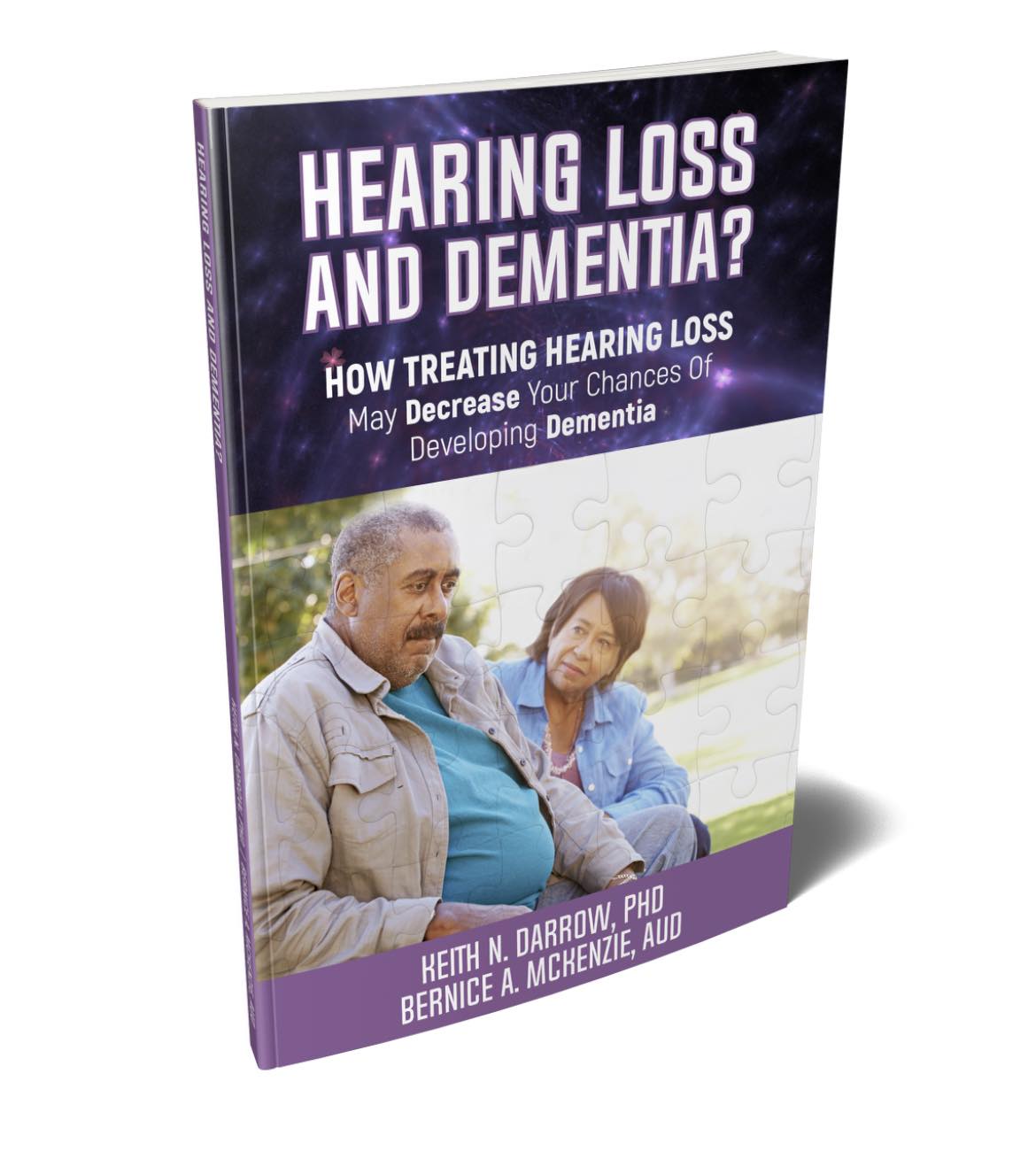 We understand that learning about tinnitus and hearing loss can feel overwhelming, which is why our new patient appointments last up to two hours. To help patients feel prepared and informed, we send them our pre-education book before their appointment. Co-authored by our owner, Bernice McKenzie, this book explains the treatment process in clear, easy-to-understand terms. It’s the perfect way to start your journey toward better hearing health.
We understand that learning about tinnitus and hearing loss can feel overwhelming, which is why our new patient appointments last up to two hours. To help patients feel prepared and informed, we send them our pre-education book before their appointment. Co-authored by our owner, Bernice McKenzie, this book explains the treatment process in clear, easy-to-understand terms. It’s the perfect way to start your journey toward better hearing health.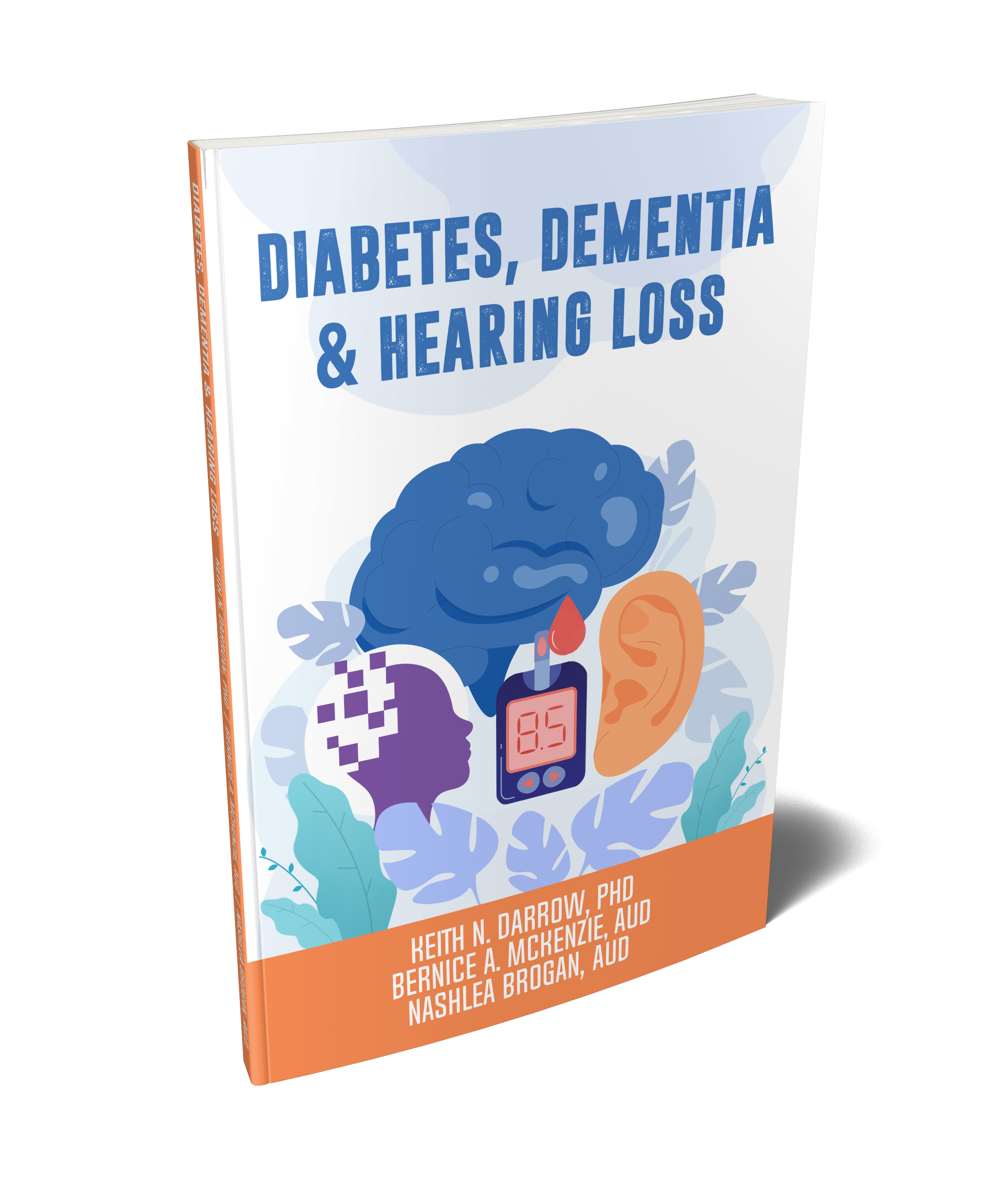 Did you know there’s a connection between diabetes, dementia, and hearing loss? This critical link inspired Bernice McKenzie to co-author a book on the topic. It’s an essential resource for anyone interested in understanding how these conditions interact and why treating hearing loss is so important for overall health. You can request your free copy by visiting
Did you know there’s a connection between diabetes, dementia, and hearing loss? This critical link inspired Bernice McKenzie to co-author a book on the topic. It’s an essential resource for anyone interested in understanding how these conditions interact and why treating hearing loss is so important for overall health. You can request your free copy by visiting 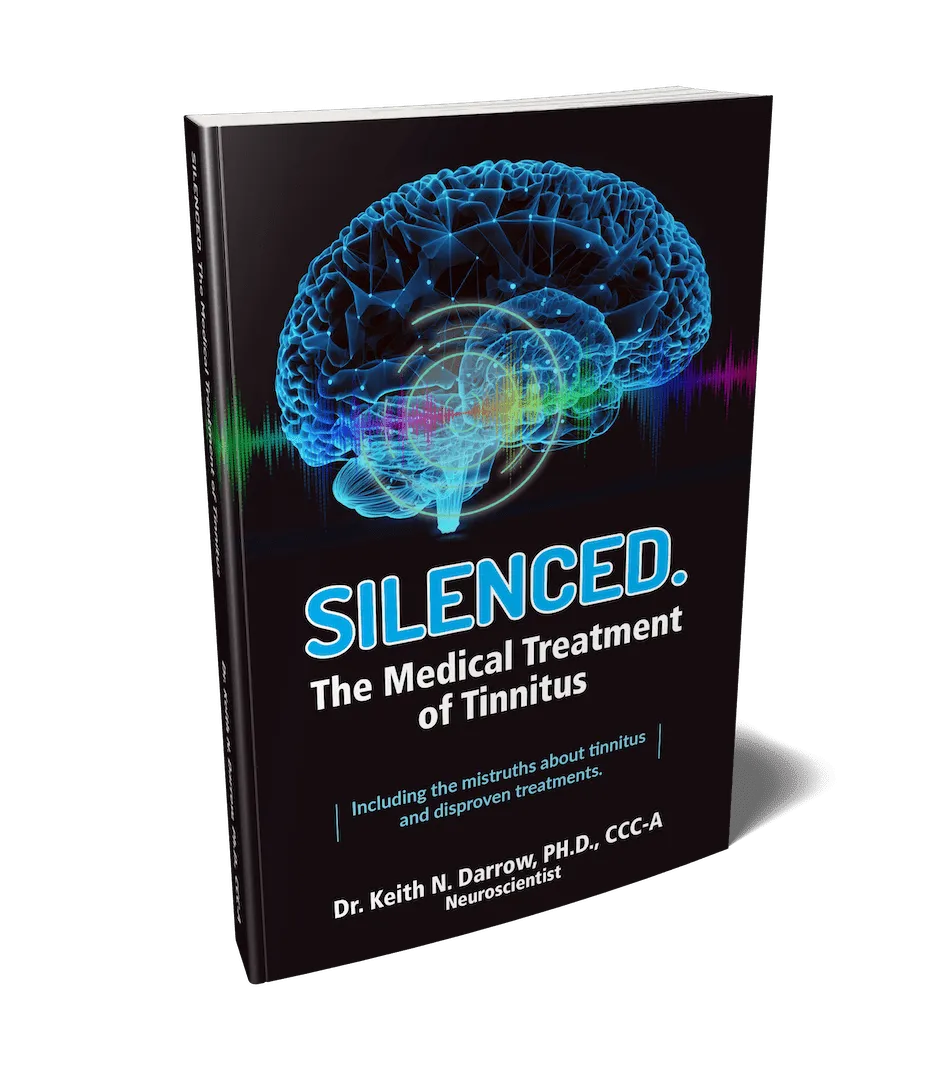 Tinnitus can be a frustrating and confusing condition, especially with so much conflicting information online. Dr. Keith Darrow’s book, “SILENCED. The Medical Treatment of Tinnitus”, is an excellent resource that cuts through the noise. It provides accurate, up-to-date information about tinnitus and treatment options in an easy-to-read format. This book is available free of charge—just request your copy today by clicking
Tinnitus can be a frustrating and confusing condition, especially with so much conflicting information online. Dr. Keith Darrow’s book, “SILENCED. The Medical Treatment of Tinnitus”, is an excellent resource that cuts through the noise. It provides accurate, up-to-date information about tinnitus and treatment options in an easy-to-read format. This book is available free of charge—just request your copy today by clicking  Do you know someone who’s life would be improved by improved hearing? WE WANT TO KNOW!
Do you know someone who’s life would be improved by improved hearing? WE WANT TO KNOW!
